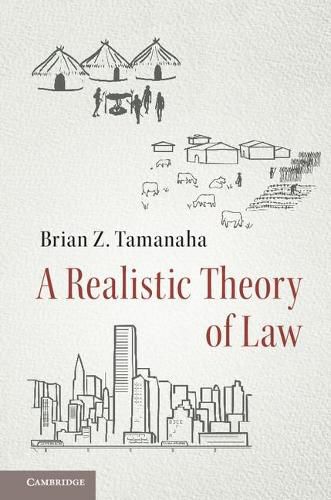Readings Newsletter
Become a Readings Member to make your shopping experience even easier.
Sign in or sign up for free!
You’re not far away from qualifying for FREE standard shipping within Australia
You’ve qualified for FREE standard shipping within Australia
The cart is loading…






This book articulates an empirically grounded theory of law applicable throughout history and across different societies. Unlike natural law theory or analytical jurisprudence, which are narrow, abstract, ahistorical, and detached from society, Tamanaha’s theory presents a holistic vision of law within society, evolving in connection with social, cultural, economic, political, ecological, and technological factors. He revives a largely forgotten theoretical perspective on law that runs from Montesquieu through the legal realists to the present. This book explains why the classic question ‘what is law?’ has never been resolved, and casts doubt on theorists’ claims about necessary and universal truths about law. This book develops a theory of law as a social institution with varying forms and functions, tracing law from hunter-gatherer societies to the modern state and beyond. Tamanaha’s theory accounts for social influences on law, legal influences on society, law and domination, multifunctional governmental uses of law, legal pluralism, international law, and other legal aspects largely overlooked in jurisprudence.
$9.00 standard shipping within Australia
FREE standard shipping within Australia for orders over $100.00
Express & International shipping calculated at checkout
This book articulates an empirically grounded theory of law applicable throughout history and across different societies. Unlike natural law theory or analytical jurisprudence, which are narrow, abstract, ahistorical, and detached from society, Tamanaha’s theory presents a holistic vision of law within society, evolving in connection with social, cultural, economic, political, ecological, and technological factors. He revives a largely forgotten theoretical perspective on law that runs from Montesquieu through the legal realists to the present. This book explains why the classic question ‘what is law?’ has never been resolved, and casts doubt on theorists’ claims about necessary and universal truths about law. This book develops a theory of law as a social institution with varying forms and functions, tracing law from hunter-gatherer societies to the modern state and beyond. Tamanaha’s theory accounts for social influences on law, legal influences on society, law and domination, multifunctional governmental uses of law, legal pluralism, international law, and other legal aspects largely overlooked in jurisprudence.